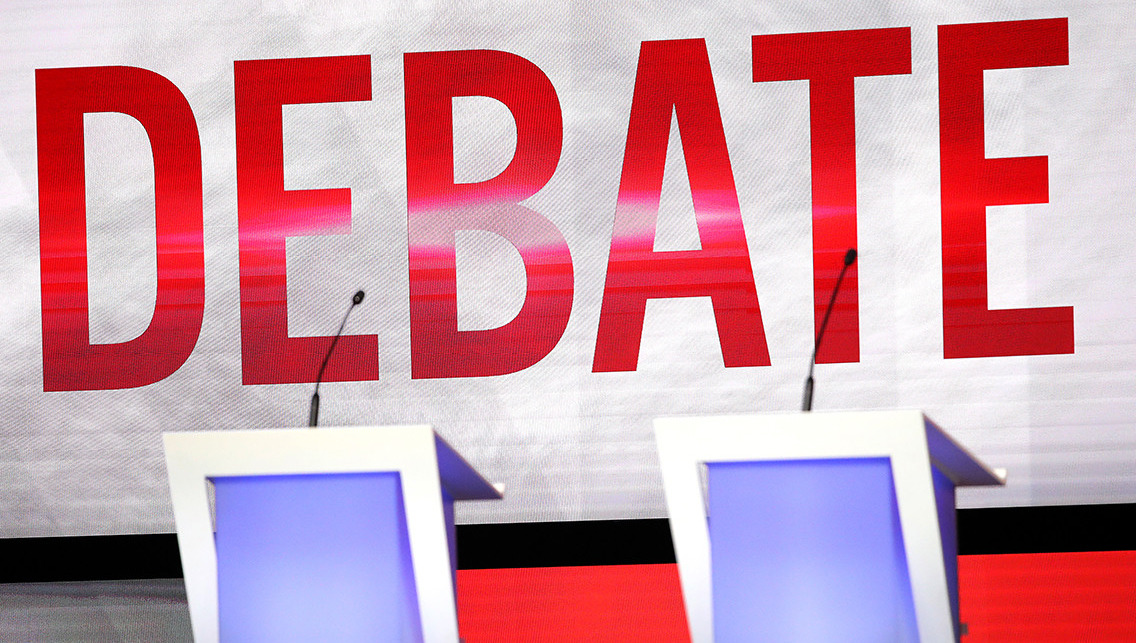Debate time is an essential aspect of critical thinking and effective communication. Whether in academic settings, community forums, or casual conversations, debates allow individuals to explore diverse perspectives, sharpen their reasoning skills, and enhance their ability to articulate thoughts clearly. This article delves into the significance of debate time, the skills it fosters, and how to engage in constructive debates.
The Importance of Debate Time

Debate time serves multiple purposes, particularly in educational and social contexts. Here are a few key reasons why engaging in debates is vital:
1. Fostering Critical Thinking
Engaging in debates encourages participants to think critically. By considering opposing viewpoints, individuals learn to analyze arguments, evaluate evidence, and construct well-reasoned positions. This skill is not only valuable in formal settings but also in everyday decision-making.
2. Enhancing Communication Skills
Debate time provides a platform for individuals to practice their communication skills. Clear articulation of ideas, active listening, and respectful rebuttal are crucial components of effective debate. These skills translate well into various areas of life, including professional environments and personal relationships.
3. Encouraging Open-Mindedness

Participating in debates requires an open mind. Encountering different perspectives helps individuals understand diverse viewpoints and fosters empathy. This understanding is essential in today’s global society, where collaboration and tolerance are key to progress.
4. Building Confidence
Regularly engaging in debate can significantly boost self-confidence. As individuals become more comfortable expressing their opinions and defending their arguments, they grow more assured in their abilities to communicate effectively in various situations.
Preparing for Debate Time
Preparation is key to a successful debate. Here are steps to ensure you are ready to engage meaningfully in discussions.
1. Research the Topic
Before debate time, thorough research on the topic is crucial. Understanding various facets of the issue will enable you to present informed arguments. Utilize reputable sources, and don’t shy away from exploring opposing views to better prepare for counterarguments.
2. Organize Your Thoughts
Once you have gathered your research, organize your thoughts logically. Outline your main points and supporting evidence. This structure will help you present your arguments clearly and persuasively during the debate.
3. Anticipate Counterarguments

A strong debater anticipates the arguments that opponents may present. Consider potential counterarguments to your position and prepare responses. This proactive approach will make you more resilient in the face of opposition.
4. Practice Active Listening
Effective debate is not just about speaking; it also involves listening. Practicing active listening allows you to understand your opponent’s arguments fully, which is essential for crafting relevant responses.
Engaging in Debate Time
Once you are prepared, it’s time to engage in debate. Here are some strategies for ensuring a productive and respectful discussion.
1. Stay Calm and Composed
Debates can become heated, but it’s important to remain calm. Emotions can cloud judgment and lead to unproductive exchanges. Take deep breaths and maintain a composed demeanor, regardless of how the discussion unfolds.
2. Use Evidence to Support Your Arguments
Back up your claims with credible evidence. This could include statistics, expert opinions, or case studies. Providing factual support strengthens your arguments and enhances your credibility as a speaker.
3. Respect Opposing Views
Debates should never devolve into personal attacks. Show respect for opposing viewpoints, even if you strongly disagree. Acknowledge valid points made by your opponent and address them thoughtfully. This approach promotes a healthier dialogue and fosters mutual respect.
4. Ask Clarifying Questions
If you find an argument unclear, don’t hesitate to ask questions for clarification. This not only demonstrates your engagement in the conversation but also encourages a deeper understanding of the topic.
The Benefits of Debate Time Beyond the Classroom
While debate time is often associated with academic environments, its benefits extend far beyond the classroom. Here are some areas where debate skills can have a profound impact:
1. Professional Development
In the workplace, strong communication and critical thinking skills are invaluable. Engaging in debates can prepare individuals for presentations, negotiations, and collaborative projects. The ability to articulate ideas clearly and defend positions is essential for career advancement.
2. Civic Engagement
In an increasingly polarized society, the ability to engage in civil discourse is crucial. Debate time encourages individuals to participate in civic discussions, understand political issues, and advocate for their beliefs while respecting others’ opinions.
3. Personal Relationships
Effective communication is the foundation of healthy relationships. Debate skills can help individuals navigate disagreements constructively, fostering understanding and collaboration rather than conflict.
Conclusion: Embracing Debate Time
Debate time is more than just an academic exercise; it is a vital tool for personal and professional growth. By fostering critical thinking, enhancing communication skills, and promoting open-mindedness, debates empower individuals to navigate the complexities of modern life effectively. As we embrace the art of debate, we not only enrich our understanding of diverse perspectives but also contribute to a more informed and empathetic society.
Engaging in debate time can be transformative. Whether you’re a seasoned debater or a novice, the key is to approach each discussion with an open mind, respect for others, and a commitment to learning. So, the next time you find yourself in a debate, remember the importance of preparation, active listening, and constructive engagement. Embrace the opportunity to grow and learn through the art of debate!



